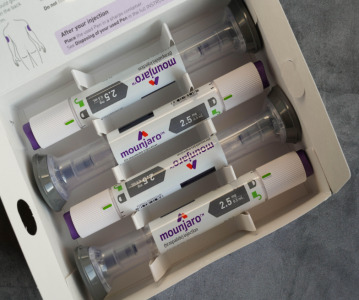FDA approves Xalkori for the treatment of patients with ROS1-positive metastatic NSCLC

Xalkori is the first and only FDA-approved biomarker-driven therapy for ROS1-positive metastatic NSCLC.
Pfizer has announced that the FDA has approved a supplemental New Drug Application (sNDA) for Xalkori (crizotinib) to treat patients with metastatic non-small cell lung cancer (NSCLC) whose tumours are ROS1-positive. In 2015, the FDA granted Breakthrough Therapy and Priority Review designations for this indication. Xalkori also is indicated for patients with metastatic NSCLC whose tumours are anaplastic lymphoma kinase (ALK)-positive as detected by an FDA-approved test.
“Today’s approval of Xalkori for ROS1-positive metastatic NSCLC represents an important milestone for patients who previously had limited treatment options,” said Dr Mace Rothenberg, senior vice president of Clinical Development and Medical Affairs and chief medical officer for Pfizer Oncology. “As the only FDA-approved biomarker-driven therapy that includes two distinct molecular targets in metastatic NSCLC, ROS1 and ALK, Xalkori exemplifies our commitment to precision drug development and to identifying the right treatment for the right patient.”
ROS1 rearrangements occur when the ROS1 gene attaches to another gene and changes the way each gene normally functions, which can contribute to cancer-cell growth. Epidemiology data suggest that ROS1 rearrangements occur in approximately 1% of NSCLC cases. Of the estimated 1.5 million new cases of NSCLC worldwide each year, roughly 15,000 may be driven by oncogenic ROS1 fusions.
“The approval of crizotinib for metastatic ROS1-positive NSCLC represents another significant step forward in biomarker-driven cancer care,” said Dr Alice Shaw, Associate Professor of Medicine at Massachusetts General Hospital and Harvard Medical School, and principal study investigator. “As with ALK-positive lung cancer, ROS1-positive lung cancer defines a distinct subset of patients for whom crizotinib is efficacious.”
The approval is based on a multicenter, single-arm Phase I study (Study 1001) that included 50 patients with ROS1-positive metastatic NSCLC treated with 250 mg of Xalkori orally twice daily. The efficacy outcome measures in this study were objective response rate and duration of response.
The results of this study showed that Xalkori exhibited marked anti-tumour activity in patients with ROS1-positive metastatic NSCLC, with an objective response rate of 66 percent (95% CI: 51%, 79%) by an independent radiology review. There was one complete response and 32 partial responses. The median duration of response was 18.3 months (95% CI: 12.7 months, not reached). Additionally, the safety profile of Xalkori in ROS1-positive metastatic NSCLC was generally consistent with that observed in patients with ALK-positive metastatic NSCLC.
An FDA-approved test for the detection of ROS1 rearrangements in NSCLC is not currently available; however, laboratory developed tests are available. A companion diagnostic test is currently under development to identify patients with ROS1-positive metastatic NSCLC who may benefit from treatment with Xalkori.
In addition, the EMA is reviewing an application to extend the marketing authorization of Xalkori to include the treatment of adult patients with ROS1-positive advanced NSCLC. In Europe, Xalkori is indicated for the first-line treatment of adults with ALK-positive advanced NSCLC and for the treatment of adults with previously treated ALK-positive advanced NSCLC.
Related News
-
News The next 15 drugs up for negotiation with Medicare include several blockbusters
By now, everyone is quite familiar with the drug price negotiations taking place between drug companies and the Centres for Medicare & Medicaid Services (CMS) in the USA as part of measures being taken to reduce the cost of drugs for patients, to make ... -
News PSCI Welcomes Delpharm, Samsung Biologics, and Suven as First Supplier Partners
The pharmaceutical industry continues to evolve with an increasing focus on responsible sourcing, sustainability, and collaboration across the supply chain. Under a new model to recognise suppliers within the pharmaceutical and healthcare industry that... -
News Drug prices agreed upon as part of the US Inflation Reduction Act
The Inflation Reduction Act brought into constitution by the Biden administation in 2022, which proposed a drug price negotiation between the government and pharmaceutical companies, has reached it's first agreement. -
News Eisai Alzheimer’s drug authorised in UK but still faces obstacles
In partnership with BioArctic AB, pharmaceutical company Eisai has been granted Marketing Authorisation by the Medicines and Healthcare products Regulatory Agency (MHRA) for its Alzheimer’s disease drug product Leqembi. -
News Eli Lilly's weight loss drugs removed from the FDA's shortage list
The US FDA have recently updated their drug shortage list. The recently released list shows that all dosage forms of Eli Lilly's weight-loss drug Zepbound and their diabetes drug Mounjaro are now available. -
News Global advancements in the diagnosis and treatment of rare diseases: Rare Disease Day 2024
Rare Diseases Day is celebrated on the 29th February 2024 and represents the plight of rare disease patients to gain diagnosis and access to suitable treatment. -
News Pharmaceutical industry supports COP28 health stance in joint statement
As COP28 takes place over this week in Dubai, UAE, several bodies in the pharmaceutical and health industries have come together to announce support of key movements in sustainability in the sector, and to recognise sustainability as a health issue.&nb... -
News Biden backs Cold-War measures to shore-up medical supply chains
In a recent strategy to combat rising inflation and the cost of living crisis, President Joe Biden has invoked a Cold War-era act to increase investment in a selection of medicines and supplies.
Recently Visited
Position your company at the heart of the global Pharma industry with a CPHI Online membership
-
Your products and solutions visible to thousands of visitors within the largest Pharma marketplace
-
Generate high-quality, engaged leads for your business, all year round
-
Promote your business as the industry’s thought-leader by hosting your reports, brochures and videos within your profile
-
Your company’s profile boosted at all participating CPHI events
-
An easy-to-use platform with a detailed dashboard showing your leads and performance



.png)



